How Long Does Wine Last Once Opened? (Here's the Truth!)
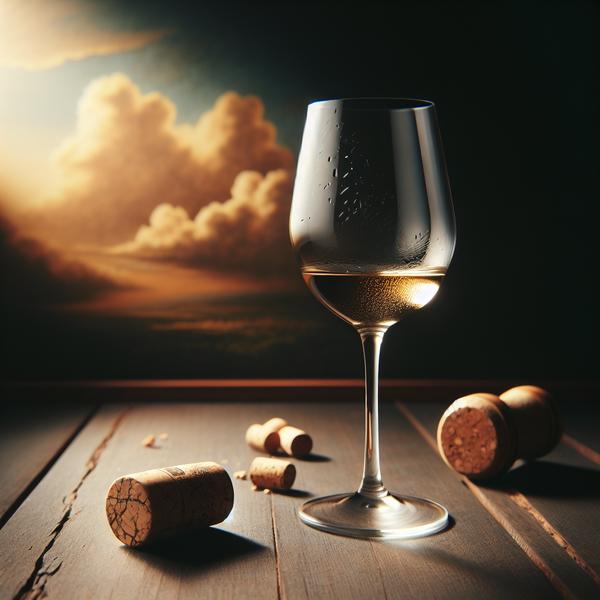
Ever wondered how long wine lasts once it's uncorked?
I bet you've found yourself staring at that half-full bottle, torn between indulging in another glass and worrying it'll go bad. 😔
Well, I feel your struggle.
Let's uncover the truth together, shall we?
How Long Is Wine Good After Opening?
The shelf life of opened wine varies depending on factors like storage temperature and the specific type of wine. Generally, most opened wines remain drinkable for 3 to 5 days, with lighter-weight whites lasting about 2 days.
If you store white wine in the fridge, it can stay fresh longer than if you leave it at room temperature.
Keeping your opened white wine chilled can actually make it last up to 3 days.
But some types of white wine, like oaked Chardonnay and Viognier, tend to oxidize faster.
This means they start losing flavor and aroma sooner than other varieties.
So if you have one of these wines open, finish it within 2 days to enjoy it at its best.
Now, let's talk about average wine – not too light, not too heavy.
Opened wine usually lasts around 3 to 5 days...more or less.
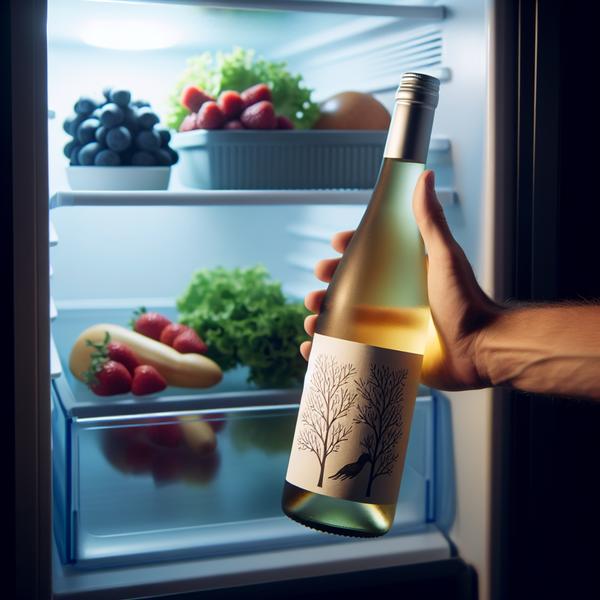
However, how you handle the bottle can also affect how long an opened wine stays good.
Opening and closing it multiple times exposes the wine to oxygen, which speeds up spoilage.
So be mindful of when you open that special bottle you're savoring.
But what do you do if you can't finish a bottle before it goes bad?
Don't worry, don't pour it away. Instead, put it to good use in your kitchen.
Opened wine still has plenty of flavors that can enhance your cooking. Use it for deglazing pans for sauces or braising meat.
To summarize, opened wine typically lasts 3 to 5 days, but remember chilling your white wine can give you more time.
And if you can't finish the bottle in time, embrace your inner chef and add some deliciousness to your meals.
And if you're wondering about other liquids that can last for a while, let me tell you about jelly.
Have you ever thought about how long it takes for jelly to harden? Well, my article, my blog post, my guide on How Much Time Does It Take for Jelly to Harden can provide you with all the answers you need.
How Long Does Red Wine Last After Opening?
| Wine Type | Shelf Life After Opening |
|---|---|
| Red | Up to 5 days |
| White | Shorter lifespan |
Alright, let's get to the juicy details about how long that opened bottle of red wine can last. 😄
It all depends on the wine you're dealing with.
Red wines with more alcohol and tannins tend to stick around longer.
These bad boys have protective components that help preserve their flavors even after getting exposed to air. So they'll chug along for about 5 days with proper storage (cool and dark place with a wine stopper or cork).
Lighter red wines don't have as many tannins, which means they're not as good at protecting against oxygen.
That leaves them lasting just a couple of days after opening.
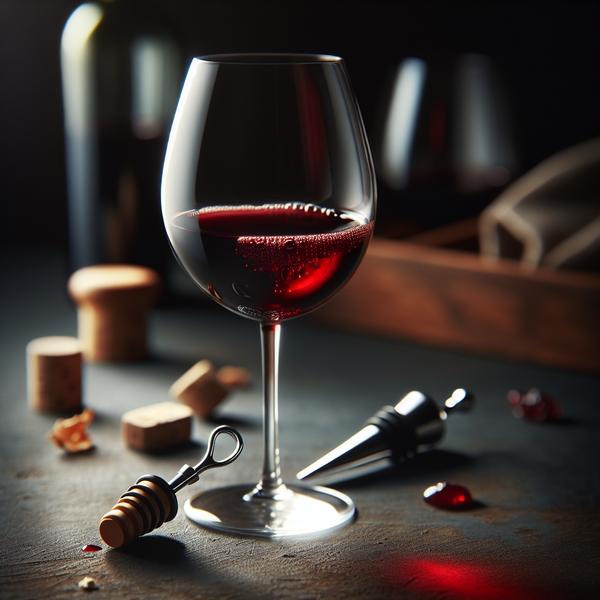
Can't hang out as long as their stronger counterparts, unfortunately.
And here's another tip: drier red wines stand the test of time better than sweeter ones.
The sugar content in the sweet stuff makes it go bad faster.
So keep that in mind before pouring yourself a glass!
Now, what about white wine?
Well, white wine doesn't have the same stamina as its bold red sibling.
In fact, rosé and full-bodied white wines will only last you 3 days tops. Don't wait too long to finish those bottles, my friend.
Some missing info you must know: Further down the blog post, I'll give you all the details on how to determine if your wine has gone bad. So keep reading, because I've got you covered!
And it gets better...
There are some handy tricks you can use to prolong the life of your opened bottle of wine.
Curious to know what they are?
Let's dive into the next section and discover how you can make that delicious bottle last even longer!
How Long Can an Open Bottle Last in the Fridge?
| Storage Method | Wine Duration |
|---|---|
| Left on the counter | Although not recommended, leaving an open bottle of wine on the counter will cause it to deteriorate faster. Oxidation and temperature fluctuations can affect the flavor within a few days. |
| Sealed with a cork | Resealing the bottle with a cork can help extend the lifespan by slowing down oxidation. However, it is still advisable to consume it within a week to enjoy the best taste. |
| Using a vacuum pump | Utilizing a vacuum pump to remove excess air from the bottle can further delay oxidation. This can help preserve the flavors for up to 10 days, giving you a bit more time to enjoy your wine. |
| Storing in the refrigerator | As mentioned earlier, storing an open bottle in the fridge provides the longest preservation time compared to other methods. It can last for about 2-3 weeks before the flavors start to deteriorate. Just be sure to take it out and let it warm up to the ideal serving temperature before enjoying. |
Storing leftover wine in the refrigerator is a wise move if you want to extend its lifespan.
Keep it cool, baby.
However, you have to consider temperature changes.
Every time you remove the bottle, the temperature increases and then decreases when you put it back.
So be mindful of this.
Here's a handy tip for all you sparkling wine enthusiasts:
As soon as you uncork the bottle, the fizz starts to diminish rapidly - only lasting for a few hours, my friend.
That's why you should savor it right away.
Don't let the bubbles escape!
Now, let's talk practicality.
To maximize the longevity of an opened bottle of wine, place it in the refrigerator at a low temperature.
This helps slow down oxidation, which is the primary cause of loss in freshness.
If you really want to go all out, consider investing in a wine preservation system or a vacuum wine stopper.
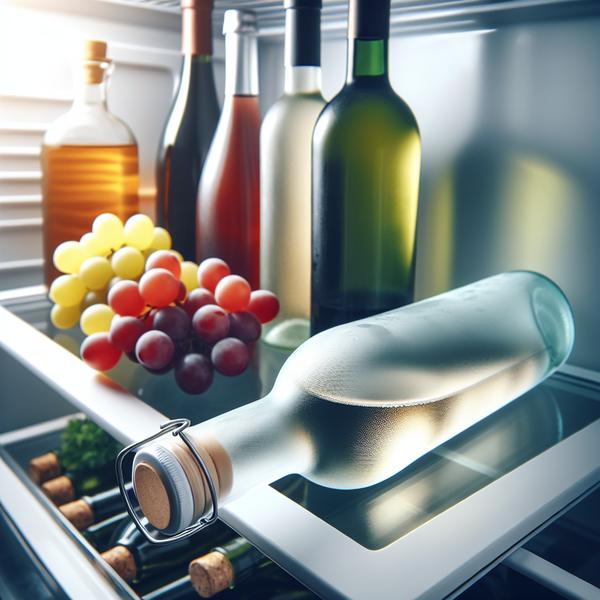
These tools minimize contact with oxygen and maintain the flavor of your wine.
Don't have any fancy wine preservation gadgets?
No worries.
You can use a makeshift method.
Simply cover the bottle tightly with plastic wrap secured by a rubber band, and voilà.
You now have a barrier against pesky air and oxidation.
Remember the golden rule of wine storage:
Keep it in cool and dark places.
Oxygen, heat, and light are the enemies here.
When you're not enjoying your wine, find a safe and cozy spot for it, away from prying eyes and sunlight.
So how long does opened wine last in the fridge?
Well, my friend, both red and white wines can stay fresh in the refrigerator for around 2-3 weeks before deteriorating.
Enjoy every sip until the very end. 😊
If you're curious about extending the freshness of prosecco and its shelf life, I recommend checking out my article on Prosecco Shelf Life. Discover helpful tips and tricks to make the most out of your bubbly experience. Enjoy!
And it gets even more intriguing when we talk about fortified wines.
These unique beverages have a secret weapon that helps them defy the limits of freshness.
Want to know what it is?
Let's dive into the world of fortified wines and their extended shelf life after opening...
Does Fortified Wine Last for Longer After Opening?
Fortified wines have higher alcohol content and additional fortification, like port or sherry.
This makes them more resistant to spoilage, keeping their quality for weeks or months after opening.
The increased shelf life is due to their high alcohol content, which prolongs freshness when stored correctly.
Fortified wines are remarkable in terms of their ability to last for an extended period even after being opened, which makes them a desirable choice.
So, if you're looking for a wine that won't go bad quickly, fortified wines like port and sherry are your best bet.
Enjoy them at your own pace without worrying about spoilage!
Recommended Cooking Should Be Fun Articles:
- Discover the advantages of fresh vs frozen meat 👉 Fresh vs Frozen Meat
- Explore the secrets to storing coffee beans for freshness 👉 Storing Coffee Guidelines
- Want to store fresh yeast and extend its shelf life? 👉 Storing Fresh Yeast Correctly
How to Know if Wine Has Gone Bad
How to tell if wine has gone bad just by looking at it
You know what you can do right away to check if your wine is no longer good?
Just take a close look at it.
If the wine looks cloudy, fizzy, or hazy, that's definitely not a good sign.
You want the wine to be clear - anything else might mean it's turned bad.
And don't forget about the color.
If your white wine starts looking more like orange juice or if your red wine turns brownish, it's time to bid farewell.
Changes in color can be a clear indicator that something isn't quite right with the wine.
Evaluating the taste and smell of wine
Now let's get to the important part - how the wine tastes and smells.
If you catch a whiff of vinegar or wet cardboard when you sniff your wine, I hate to break it to you, but it's probably gone bad.
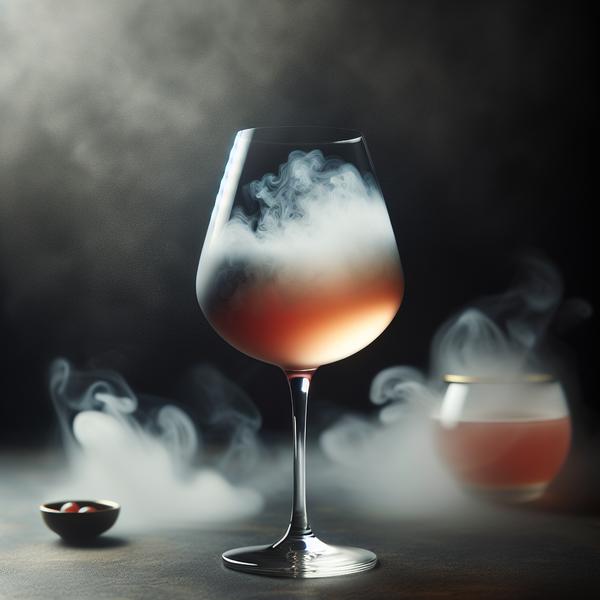
Those funky aromas are never a good sign.
And let's say you take a sip and it tastes weird - sour, bitter, or simply unpleasant.
That's when you know you should spit it out (or pour it down the drain, whichever suits your fancy).
Bad wine can have a taste that you just can't ignore.
The risks of wine oxidation and bacterial contamination
Here's the thing:
If you leave your wine bottle open for too long, it runs the risk of being affected by two troublemakers - acetic acid bacteria and oxygen.
Acetic acid bacteria can transform your wine into something similar to vinegar, and nobody wants that, right?
On top of that, oxygen can cause oxidation, resulting in flat flavors and increased levels of acetic acid in your wine.
So make sure to tightly seal those bottles if you want to avoid any undesirable chemical reactions.
If you notice any strange smells, colors, or flavors in your wine, trust your instincts - it's time to bid farewell to that bottle.
You might not want to take the risk, even if drinking bad wine won't harm you; it simply tastes like vinegar.
Final Thoughts: Maximizing Wine Quality and Longevity
Summary takeaways:
- White wine lasts up to 3 days, light-weight whites for 2 days.
- Regularly opening and closing shortens the shelf life of opened wine.
- Consider using leftover wine for cooking if not finished in time.
- Red wines can last up to 5 days when stored properly.
- Tannins and dryness affect how long red wine lasts when opened.
- Light red wines don't last as long as rich reds.
- Rosé and full-bodied white wines last a maximum of 3 days.
- Sparkling wines lose fizz quickly and should be consumed soon.
- Storing opened wine in the fridge slows down oxidation.
- Use wine preservation systems or vacuum stoppers to keep wine fresh.
- Store all wines in a cool and dark place to limit oxygen exposure.
- Fortified wines have a longer shelf life due to higher alcohol content.
- Temperature fluctuations and sunlight can affect wine's taste and aroma.
- Oxidation causes wine to go bad, resulting in flat flavors.
- Wines with less sulfur preservatives can turn vinegary quickly.
And that's all for today folks.
If you're looking for more of my helpful articles, you might want to take a peek at these: Can You Reheat Couscous, Can You Freeze Double Cream, Is Refreezing Bread Ok, Preserving Chillies, and Comparison Between Haddock and Cod
Until next time,
-Bianca Rossi